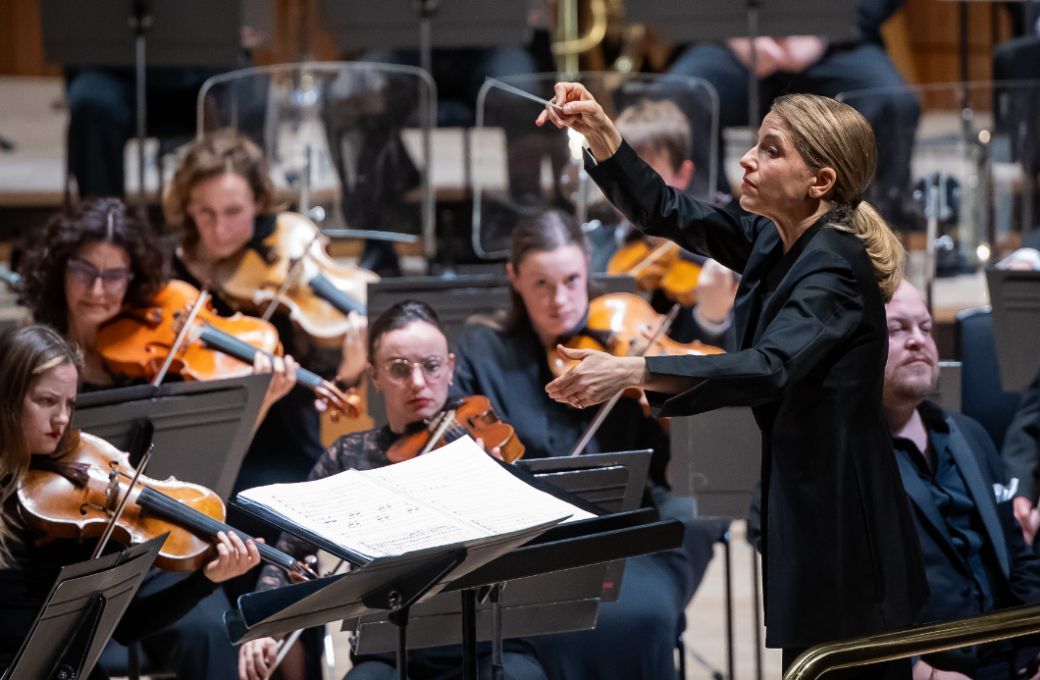Under the keen watch of conductor Karina Canellakis, the London Philharmonic Orchestra bookended its evening with two odes to spring: Lili Boulanger’s expressively poignant D’un matin de printemps and Igor Stravinsky’s tumultuous frenzy in The Rite of Spring.

Composed within five years of each other, the combination is thoughtful. Linked by the changing of the seasons, with Boulanger’s D’un matin de printemps a resonant tribute to the transient beauty of spring, and The Rite of Spring a bone-shaking narrative of the sacrificial ritual made in celebration of the season’s advent. Linked too by a certain tragic cruelty: Stravinsky’s pagan maiden is chosen by fate to dance herself to death to win the favour of the god of spring; Boulanger died at 24 and wrote her tribute to the season in her very last year.
It is hard to listen to Boulanger without thinking of her untimely death and huge potential. D’un matin is a delicate and radiant piece that initially merges flutes and strings with sparkling effect, before engaging harp and cello melodies in an expressive dance. Eventually rising to a resonant climax, the six-minute work contains a whole season of beauty, poignancy and joy.
By contrast the LPO’s retelling of The Rite – by now familiar and unlikely to cause a riot on the Southbank – had a crackling, relentless fury that refused to let up. The orchestra was both confident and disciplined in its rendition, thundering through weighty percussive lines and energetic stringwork with electricity. But the star was Canellakis herself, whipping the LPO into an inspired frenzy with her own Nijinsky-style movements. Her energy and command of the work were palpable: she has a keen flair for the dramatic in a way that was particularly suited to Stravinsky’s visceral narrative.
In between the two tributes to spring, the orchestra gave us a curio in Boulanger’s Faust et Hélène, her setting of a “lyric episode” written by Eugène Adénis and narrating an encounter between Goethe’s Faust and Helen of Troy, watched on by the demon Mephistopheles as the ghost of Paris intervenes. The piece – which won her the Prix de Rome in 1913 – is a luscious reimagining of the Faust story, with vivid orchestral phrasing and slightly discomforting, dream-like shifts in mood.
In her LPO debut, soprano Véronique Gens exhibited both tight control and sensuality as Helen, with a sparkling lyricism and a beautiful upper register. In the role of Faust, Andrew Staples’ impressively powerful and bright tenor brought both naivety and passion to the ultimately doomed character. Jean-Sébastien Bou made for a lively Mephistopheles, both in his physical theatre and vocal flourishes. Unfortunately Gens and Bou in particular were occasionally drowned by the almost-cinematic romanticism of the orchestra behind them, suggesting a need for a little more balance in the dynamics.


